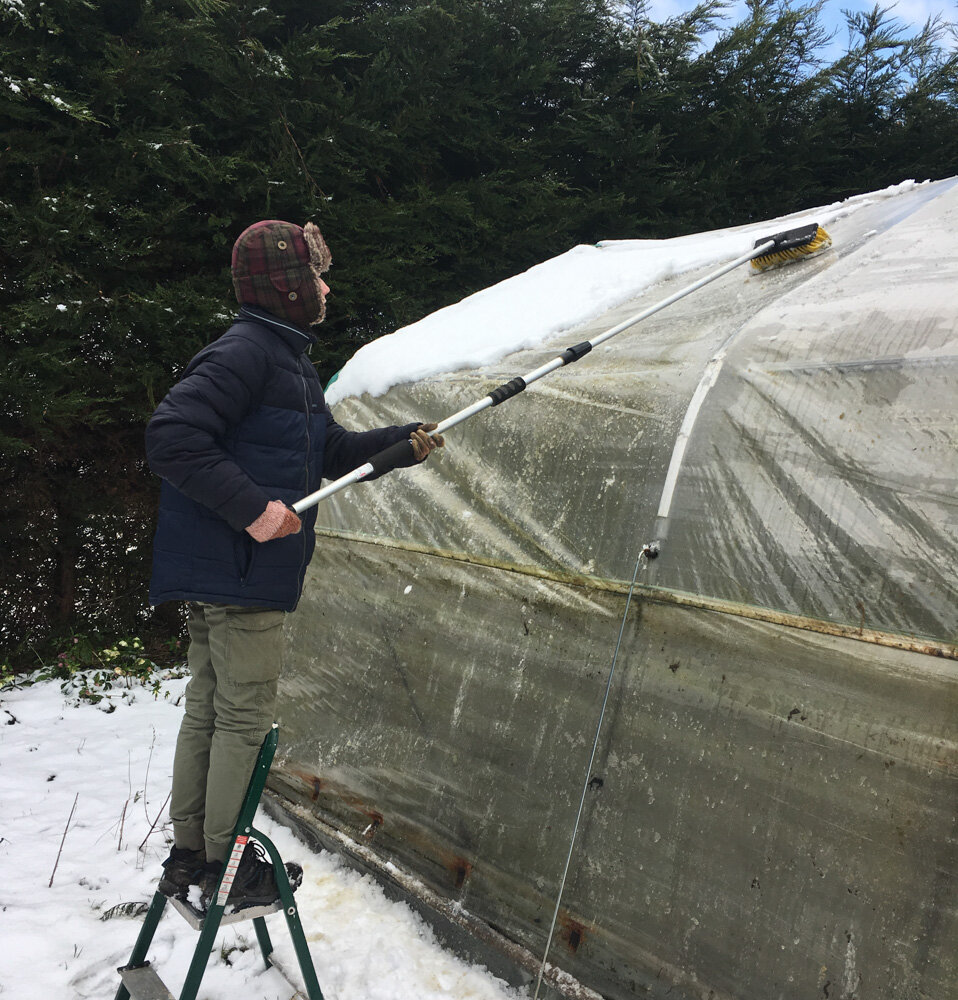Claire, Plantpassion
This section is all about the "What if's"
The " it's never going to happen" scenarios, that, if, just if, they happened, would be devastating for your business and your nearest and dearest. Unfortunately we all know that "shxx" does happen occasionally. Life doesn't always smell of roses, but I know that I'm a lot happier in the knowledge that I've done a bit of preparation for this.
So this lesson is divided into 2 parts... temporarily taking you out of the business, and permanently.
Have you thought, at all, about the "What ifs”?
Sickness or Emergencies
I'm usually a very healthy person, but a few years ago, in the summer of 2015 (actually while I was having the first few days away for 12 years with just my husband, as son was on a school camp) I started feeling ill. I thought it was a bad back at first, which was causing pain, and went to the Chiropractor when we got home. But then I got a bad "cold" which floored me, and sent me to bed for 3 days. Then it was British Flowers week, and I had open days advertised, for florists and the public, so obviously I kept going somehow.... Anyway to cut a long story short, it was Pneumonia.
When I finally gave in and let my Mum and Dad run my open day, so I could be taken to the doctor, I was sent straight to hospital for an X-ray, and told I was very lucky not to be staying there. It was June, I had a field full of flowers, customers waiting to buy them, and I was told I was allowed to do one hour of gentle watering with a hose each day and nothing else!
So did my business fold? Did my hours in bed sleeping each afternoon mean that nothing flowered?
Well no, of course, although it felt like only I could do every job on the field:
My Mum and Dad knew how to open up the farm, lock it up and put the kettle on.
I had volunteers who knew how to water, and were willing to serve tea and chat at my open day.
I had florists who knew how to pick flowers, and wanted orders, so were willing to pick their own.
I had florists who I could pay to pick flowers and make customer orders up for me.
I had friends who were willing to help for a few hours in return for flowers.
When I looked back at my takings that month, the turnover was only down negligibly on the year before, my contractor costs were slightly up, but the field had lasted without me for 3 and a half full weeks in peak season, and I'd had time to see my son play cricket lots, sat in my garden, and I was ready to hit the ground running, as soon as I had my strength back.
So, think about if you were unexpectedly out of the business for 3 weeks.
Who would, or could get access to your plot?
Who could you call on to temporarily help you?
Which would be the volunteers?
Who could you pay to give you knowledgable assistance?
Here's my blog from the time afterwards.....
I have always believed in "paying it forward". Helping others now, so that should you ever need it, they will be ever so willing to help you.
“Who can you count on this year by paying it forward?”
Covering events
What if your 3 week emergency was at a time of year when you had events? During my pneumonia, I had open days - one for florists where the Florist who was running the demonstration took over from me for the majority of the hosting, and 2 for the public, where I pretty much handed over to my Mum and Dad, and a couple of volunteers to enable the doors to be open.
If you’re anything like me, you may feel that nobody could do this except for you however, although someone else won't do it the same as you, it will get done. I'd taken money for the florist day, and the others had been advertised country wide in magazines. They couldn't be cancelled at the last minute. If you had an emergency before an Event, whether a workshop or an open day, what would you do?
What do your terms and conditions say about cancellations?
Do your terms and conditions say that it will be you running the workshop, or can someone of your calibre stand in for you?
Have you kept all the monies paid in advance aside, so that they can be paid back? (if you use some event software the money isn't paid to you until after the event)
If it's wedding flowers, - Is there another florist, or list of florists that someone can contact on your behalf to get the displays done?
While I was ill, the only wedding flowers that were needed were a DIY bucket wedding. However it was at this point I realised I hadn't written down for my helpers exactly what that contained. Even if it isn't available for your customers, have you written down for yourself and your team exactly what each "thing" you sell means in terms of workload?
This is where Staff and helpers are so important, who will cover you?
What if you went under a bus?
Gorgeous bus photo from the Heroine in Heels blog
You have one week to go before an important event that you were going to manage all on your own, you now won't be available. What steps can you take to cover it?
OK, we don't like to think about our demise, but as the saying goes,
“ the only certain things in life are death and taxes.”
Have you planned for it? Or at least had a serious think about it?
If something drastic happens to you, your loved ones are going to be coping with enough as it is. Who will deal with your business?
If you own your own land, have no contract customers (nothing booked in for a particular date) and have no staff or debt, then this may be as simple as taking down any sign, and your website / online presence. If like me you rent land, that has constraints and covenants, have staff, and commitments more than a year in advance then you will need to have a plan in place for what would happen if all of a sudden you weren't there.
Main things to think about:
Customer commitments
Workshops and weddings - Have you got any booking fees kept separately, so they can be refunded?. Do you have a list of florists who you could refer brides on to if you're unable to do their event. How will someone sorting your estate know who to contact? Have you got lists printed out? Or are there details of how to get into you computer files, and where they need to look?Staff or helpers
Is there money put aside for wages? How long would their notice period be? Would they be required to help with closing up the flower farm? Could they run, or take over the farm?Web Presence / Social media
Will you want your followers to be told about your demise? Do you want your accounts to be closed immediately, or remain for people to find out about your business, or do you want them to be your memorial? Facebook have a policy on Memorial accounts, and how to close them down.Stock and investments
Over the time you've been flower farming, you will have built up investments. Plants, equipment and accessories may all have monetary value to the right people. Have you written instructions about what might be sold? Is there anything hired or loaned that will need to go back to others?Clearing down the flower farm.
If you farm on your own land, then plants and equipment could just be left in place. If you rent land, then plantings may need to be cleared, infrastructure may need to be removed, or added to leave the land as expected. Who will do this? How will they know what is needed?
Is there a business without you?
Would your business go on without you?
In the next section Paula will go over passing on or selling a business, but here we're looking at the situation where something unexpected happens to you.
For most of us the answer is, no... because we are all, or the majority of the business. but I'd like you to think about what would happen to your business at various different times of the year.
Are there flowers that could still be cut and used?
Are there plants that could be dug up and sold?
Are you in a position where the business could be sold on to someone else? I've attached a checklist for you to start to form your own "What if" plan.
















